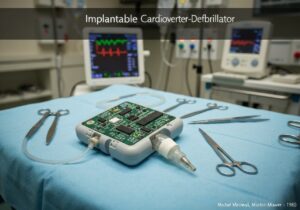Research studies performed on people that are aimed at evaluating a medical, surgical, or behavioral intervention.
- المنهجيات: لين سيجما, تصنيع, حل المشكلات, إدارة المشاريع, الجودة
Clinical Trials

Clinical Trials
- الرعاية الصحية, الأجهزة الطبية, ضمان الجودة, إدارة الجودة, البحث والتطوير, أمان, التحليل الإحصائي, تصديق
الهدف:
كيفية استخدامه:
- These are highly regulated, multi-phased studies where a new treatment (like a drug or جهاز طبي) is tested on human subjects to determine its safety and efficacy before it can be approved for public use.
الايجابيات
- Provide the highest level of evidence for the effectiveness and safety of a new treatment, are rigorously controlled and monitored, and are essential for medical innovation.
سلبيات
- Are extremely expensive and time-consuming, involve ethical considerations and risks to participants, and a successful trial is never guaranteed.
الفئات:
- الهندسة, تصميم المنتج, الجودة, إدارة المخاطر
الأفضل لـ
- Rigorously testing the safety and effectiveness of new medical interventions, such as drugs and devices.
Clinical trials serve as a systematic approach to validate new medical treatments and interventions across diverse fields, particularly within the pharmaceutical and biotechnology industries. This methodology encompasses several phases, typically structured into Phase I, Phase II, Phase III, and sometimes Phase IV, each designed to assess safety, dosage, efficacy, and long-term effects. For instance, Phase I trials might involve small groups of healthy volunteers to study pharmacokinetics and safety profiles before progressing to larger groups of patients in Phase II, where the treatment’s efficacy begins to be evaluated alongside safety. Participants in these trials are often selected based on specific inclusion and exclusion criteria to ensure the data collected is relevant and robust. Regulatory bodies, such as the U.S. Food and Drug Administration (FDA) and the European Medicines Agency (EMA), provide oversight and guidelines that shape the design and implementation of these studies, underscoring the need for collaboration between clinical researchers, regulatory experts, and healthcare professionals. Furthermore, clinical trials extend beyond traditional drugs, encompassing innovative medical devices like implantable technologies or diagnostic tools, which may require unique testing frameworks. Data derived from these trials contributes significantly to scientific literature and informs best practices in patient care, while successfully navigating ethical considerations and informed consent protocols.
الخطوات الرئيسية لهذه المنهجية
- Identify the research question and develop a study protocol.
- Obtain Institutional Review Board (IRB) approval.
- Recruit and screen participants based on eligibility criteria.
- Randomize participants into treatment and control groups.
- Administer the treatment or intervention according to the study protocol.
- Monitor participants for safety and adverse events throughout the trial.
- Conduct interim analysis for efficacy and safety, if applicable.
- Complete follow-up assessments as outlined in the protocol.
- Analyze the data to evaluate treatment effects and outcomes.
نصائح للمحترفين
- Incorporate adaptive trial designs to allow for modifications based on interim results, enhancing efficiency and effectiveness.
- Utilize real-world evidence in conjunction with clinical trial data to strengthen claims about safety and efficacy post-approval.
- Implement robust data management systems for ensuring compliance with regulatory requirements and facilitating transparent reporting.
لقراءة عدة منهجيات ومقارنتها, نوصي باستخدام
> مستودع المنهجيات الشامل <
مع أكثر من 400 منهجية أخرى.
نرحب بتعليقاتكم على هذه المنهجية أو المعلومات الإضافية على قسم التعليقات أدناه ↓، وكذلك أي أفكار أو روابط متعلقة بالهندسة.
السياق التاريخي
1960
1960
1969
1976-05-28
1980
1990
1960
1965
1970
1980
1980
(إذا كان التاريخ غير معروف أو غير ذي صلة، على سبيل المثال "ميكانيكا الموائع"، يتم تقديم تقدير تقريبي لظهوره الملحوظ)











منشورات ذات صلة
استبيانات الانزعاج العضلي الهيكلي
الاختبار متعدد المتغيرات (MVT)
تحليل الانحدار المتعدد
أنظمة التقاط الحركة
طريقة MoSCoW
اختبار متوسط المزاج